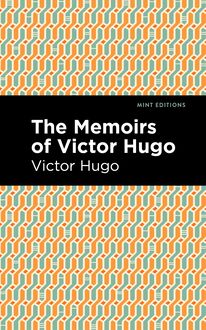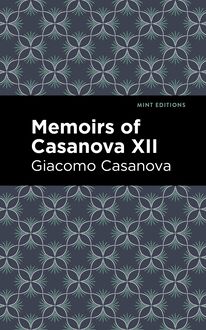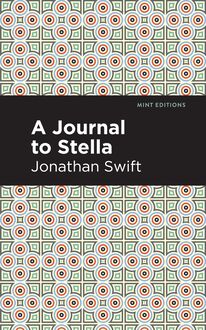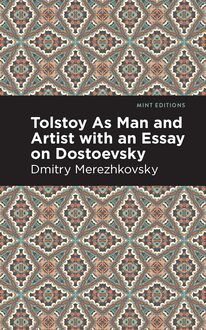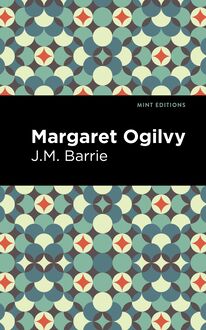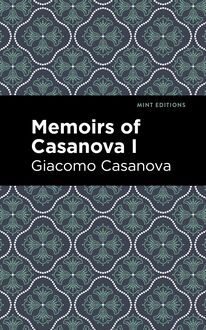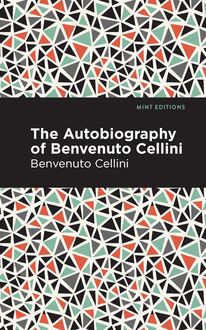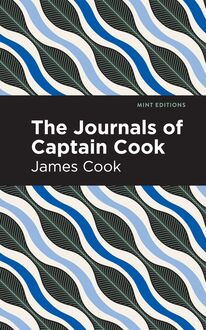-
 Univers
Univers
-
 Ebooks
Ebooks
-
 Livres audio
Livres audio
-
 Presse
Presse
-
 Podcasts
Podcasts
-
 BD
BD
-
 Documents
Documents
-
- Cours
- Révisions
- Ressources pédagogiques
- Sciences de l’éducation
- Manuels scolaires
- Langues
- Travaux de classe
- Annales de BEP
- Etudes supérieures
- Maternelle et primaire
- Fiches de lecture
- Orientation scolaire
- Méthodologie
- Corrigés de devoir
- Annales d’examens et concours
- Annales du bac
- Annales du brevet
- Rapports de stage
La lecture à portée de main
Vous pourrez modifier la taille du texte de cet ouvrage
Découvre YouScribe en t'inscrivant gratuitement
Je m'inscrisDécouvre YouScribe en t'inscrivant gratuitement
Je m'inscrisEn savoir plus
Vous pourrez modifier la taille du texte de cet ouvrage
En savoir plus

Description
Memoirs of Casanova (1792) is the autobiography of Italian adventure and socialite Giacomo Casanova. Written at the end of his life, the Memoirs capture the experiences of one of Europe’s most notorious figures, a man whose escapades as a gambler, womanizer, and socialite are matched only by his unique gift for sharing them with the world. More than perhaps any other man, Casanova sought to emulate the lessons of the Enlightenment on the level of everyday life, a sentiment captured perfectly in the opening sentence of his Memoirs: “I will begin with this confession: whatever I have done in the course of my life, whether it be good or evil, has been done freely; I am a free agent.”Memoirs of Casanova Volume III covers the young adulthood of Giacomo Casanova. When his religious career ends in disgrace and imprisonment, Casanova joins the Venetian military at Corfu. Following a brief sojourn in Constantinople, he enters the service of the Republic of Venice and slowly rises through the ranks to become an officer. Casanova soon grows tired of military life, however, and spends most of his time in Corfu gambling and socializing with the local elite. When he is arrested for disobedience, he begins looking for a way out of military life, and devotes much of his time to the service of Madame F., a beautiful noblewoman who enlists his services around the home. When an injury leaves her bedridden, his duties bring him closer to her than ever before, and soon threaten to turn a professional relationship into a forbidden romantic tryst. With a beautifully designed cover and professionally typeset manuscript, this edition of Giacomo Casanova’s Memoirs of Casanova is a classic of European literature reimagined for modern readers.
Sujets
Informations
| Publié par | Mint Editions |
| Date de parution | 29 juin 2021 |
| Nombre de lectures | 0 |
| EAN13 | 9781513286877 |
| Langue | English |
| Poids de l'ouvrage | 1 Mo |
Informations légales : prix de location à la page 0,0350€. Cette information est donnée uniquement à titre indicatif conformément à la législation en vigueur.
Extrait
Memoirs of Casanova Volume III
Giacomo Casanova
Memoirs of Casanova Volume III was first published in 1902.
This edition published by Mint Editions 2021.
ISBN 9781513281858 | E-ISBN 9781513286877
Published by Mint Editions®
minteditionbooks.com
Publishing Director: Jennifer Newens
Design & Production: Rachel Lopez Metzger
Project Manager: Micaela Clark
Translated By: Arthur Machen
Typesetting: Westchester Publishing Services
C ONTENTS
I. I Renounce the Clerical Profession, and Enter the Military Service—Therese Leaves for Naples, and I Go to Venice— I Am Appointed Ensign in the Army of My Native Country—I Embark for Corfu, and Land at Orsera to Take a Walk
II. An Amusing Meeting in Orsera—Journey to Corfu—My Stay in Constantinople—Bonneval— My Return to Corfu—Madame F.—The False Prince—I Run Away from Corfu—My Frolics at Casopo—I Surrender My self a Prisoner—My Speedy Release and Triumph—My Success with Madame F.
III. Progress of My Amour—My Journey to Otranto—I Enter the Service of Madame F.—A Fortunate Excoriation
I
I R ENOUNCE THE C LERICAL P ROFESSION , AND E NTER THE M ILITARY S ERVICE —T HERESE L EAVES FOR N APLES , AND I G O TO V ENICE —I A M A PPOINTED E NSIGN IN THE A RMY OF M Y N ATIVE C OUNTRY —I E MBARK FOR C ORFU , AND L AND AT O RSERA TO T AKE A W ALK
I had been careful, on my arrival in Bologna, to take up my quarters at a small inn, so as not to attract any notice, and as soon as I had dispatched my letters to Therese and the French officer, I thought of purchasing some linen, as it was at least doubtful whether I should ever get my trunk. I deemed it expedient to order some clothes likewise. I was thus ruminating, when it suddenly struck me that I was not likely now to succeed in the Church, but feeling great uncertainty as to the profession I ought to adopt, I took a fancy to transform myself into an officer, as it was evident that I had not to account to anyone for my actions. It was a very natural fancy at my age, for I had just passed through two armies in which I had seen no respect paid to any garb but to the military uniform, and I did not see why I should not cause myself to be respected likewise. Besides, I was thinking of returning to Venice, and felt great delight at the idea of shewing myself there in the garb of honour, for I had been rather ill-treated in that of religion.
I enquired for a good tailor: death was brought to me, for the tailor sent to me was named Morte. I explained to him how I wanted my uniform made, I chose the cloth, he took my measure, and the next day I was transformed into a follower of Mars. I procured a long sword, and with my fine cane in hand, with a well-brushed hat ornamented with a black cockade, and wearing a long false pigtail, I sallied forth and walked all over the city.
I bethought myself that the importance of my new calling required a better and more showy lodging than the one I had secured on my arrival, and I moved to the best inn. I like even now to recollect the pleasing impression I felt when I was able to admire myself full length in a large mirror. I was highly pleased with my own person! I thought myself made by nature to wear and to honour the military costume, which I had adopted through the most fortunate impulse. Certain that nobody knew me, I enjoyed by anticipation all the conjectures which people would indulge in respecting me, when I made my first appearance in the most fashionable cafe of the town.
My uniform was white, the vest blue, a gold and silver shoulder-knot, and a sword-knot of the same material. Very well pleased with my grand appearance, I went to the coffee-room, and, taking some chocolate, began to read the newspapers, quite at my ease, and delighted to see that everybody was puzzled. A bold individual, in the hope of getting me into conversation, came to me and addressed me; I answered him with a monosyllable, and I observed that everyone was at a loss what to make of me. When I had sufficiently enjoyed public admiration in the coffee-room, I promenaded in the busiest thoroughfares of the city, and returned to the inn, where I had dinner by myself.
I had just concluded my repast when my landlord presented himself with the travellers’ book, in which he wanted to register my name.
“Casanova.”
“Your profession, if you please, sir?”
“Officer.”
“In which service?”
“None.”
“Your native place?”
“Venice.”
“Where do you come from?”
“That is no business of yours.”
This answer, which I thought was in keeping with my external appearance, had the desired effect: the landlord bowed himself out, and I felt highly pleased with myself, for I knew that I should enjoy perfect freedom in Bologna, and I was certain that mine host had visited me at the instance of some curious person eager to know who I was.
The next day I called on M. Orsi, the banker, to cash my bill of exchange, and took another for six hundred sequins on Venice, and one hundred sequins in gold after which I again exhibited myself in the public places. Two days afterwards, whilst I was taking my coffee after dinner, the banker Orsi was announced. I desired him to be shewn in, and he made his appearance accompanied my Monsignor Cornaro, whom I feigned not to know. M. Orsi remarked that he had called to offer me his services for my letters of exchange, and introduced the prelate. I rose and expressed my gratification at making his acquaintance. “But we have met before,” he replied, “at Venice and Rome.” Assuming an air of blank surprise, I told him he must certainly be mistaken. The prelate, thinking he could guess the reason of my reserve, did not insist, and apologized. I offered him a cup of coffee, which he accepted, and, on leaving me, he begged the honour of my company to breakfast the next day.
I made up my mind to persist in my denials, and called upon the prelate, who gave me a polite welcome. He was then apostolic prothonotary in Bologna. Breakfast was served, and as we were sipping our chocolate, he told me that I had most likely some good reasons to warrant my reserve, but that I was wrong not to trust him, the more so that the affair in question did me great honour. “I do not know,” said I, “what affair you are alluding to.” He then handed me a newspaper, telling me to read a paragraph which he pointed out. My astonishment may be imagined when I read the following correspondence from Pesaro: “M. de Casanova, an officer in the service of the queen, has deserted after having killed his captain in a duel; the circumstances of the duel are not known; all that has been ascertained is that M. de Casanova has taken the road to Rimini, riding the horse belonging to the captain, who was killed on the spot.”
In spite of my surprise, and of the difficulty I had in keeping my gravity at the reading of the paragraph, in which so much untruth was blended with so little that was real, I managed to keep a serious countenance, and I told the prelate that the Casanova spoken of in the newspaper must be another man.
“That may be, but you are certainly the Casanova I knew a month ago at Cardinal Acquaviva’s, and two years ago at the house of my sister, Madame Lovedan, in Venice. Besides the Ancona banker speaks of you as an ecclesiastic in his letter of advice to M. Orsi:”
“Very well, monsignor; your excellency compels me to agree to my being the same Casanova, but I entreat you not to ask me any more questions as I am bound in honour to observe the strictest reserve.”
“That is enough for me, and I am satisfied. Let us talk of something else.”
I was amused at the false reports which were being circulated about me, and, I became from that moment a thorough sceptic on the subject of historical truth. I enjoyed, however, very great pleasure in thinking that my reserve had fed the belief of my being the Casanova mentioned in the newspaper. I felt certain that the prelate would write the whole affair to Venice, where it would do me great honour, at least until the truth should be known, and in that case my reserve would be justified, besides, I should then most likely be far away. I made up my mind to go to Venice as soon as I heard from Therese, as I thought that I could wait for her there more comfortably than in Bologna, and in my native place there was nothing to hinder me from marrying her openly. In the mean time the fable from Pesaro amused me a good deal, and I expected every day to see it denied in some newspaper. The real officer Casanova must have laughed at the accusation brought against him of having run away with the horse, as much as I laughed at the caprice which had metamorphosed me into an officer in Bologna, just as if I had done it for the very purpose of giving to the affair every appearance of truth.
On the fourth day of my stay in Bologna, I received by express a long letter from Therese. She informed me that, on the day after my escape from Rimini, Baron Vais had presented to her the Duke de Castropignano, who, having heard her sing, had offered her one thousand ounces a year, and all travelling expenses paid, if she would accept an engagement as prima-donna at the San Carlo Theatre, at Naples, where she would have to go immediately after her Rimini engagement. She had requested and obtained a week to come to a decision. She enclosed two documents, the first was the written memorandum of the duke’s proposals, which she sent in order that I should peruse it, as she did not wish to sign it without my consent; the second was a formal engagement, written by herself, to remain all her life devoted to me and at my service. She added in her letter that, if I wished to accompany her to Naples, she would meet me anywhere I might appoint, but that, if I had any objection to return to that city, she would immediately refuse the brilliant offer, for her only happiness was to please me in all things.
For the first time in my life I found myself in need of thoughtful consideration
-
 Univers
Univers
-
 Ebooks
Ebooks
-
 Livres audio
Livres audio
-
 Presse
Presse
-
 Podcasts
Podcasts
-
 BD
BD
-
 Documents
Documents
-
Jeunesse
-
Littérature
-
Ressources professionnelles
-
Santé et bien-être
-
Savoirs
-
Education
-
Loisirs et hobbies
-
Art, musique et cinéma
-
Actualité et débat de société
-
Jeunesse
-
Littérature
-
Ressources professionnelles
-
Santé et bien-être
-
Savoirs
-
Education
-
Loisirs et hobbies
-
Art, musique et cinéma
-
Actualité et débat de société
-
Actualités
-
Lifestyle
-
Presse jeunesse
-
Presse professionnelle
-
Pratique
-
Presse sportive
-
Presse internationale
-
Culture & Médias
-
Action et Aventures
-
Science-fiction et Fantasy
-
Société
-
Jeunesse
-
Littérature
-
Ressources professionnelles
-
Santé et bien-être
-
Savoirs
-
Education
-
Loisirs et hobbies
-
Art, musique et cinéma
-
Actualité et débat de société
- Cours
- Révisions
- Ressources pédagogiques
- Sciences de l’éducation
- Manuels scolaires
- Langues
- Travaux de classe
- Annales de BEP
- Etudes supérieures
- Maternelle et primaire
- Fiches de lecture
- Orientation scolaire
- Méthodologie
- Corrigés de devoir
- Annales d’examens et concours
- Annales du bac
- Annales du brevet
- Rapports de stage
